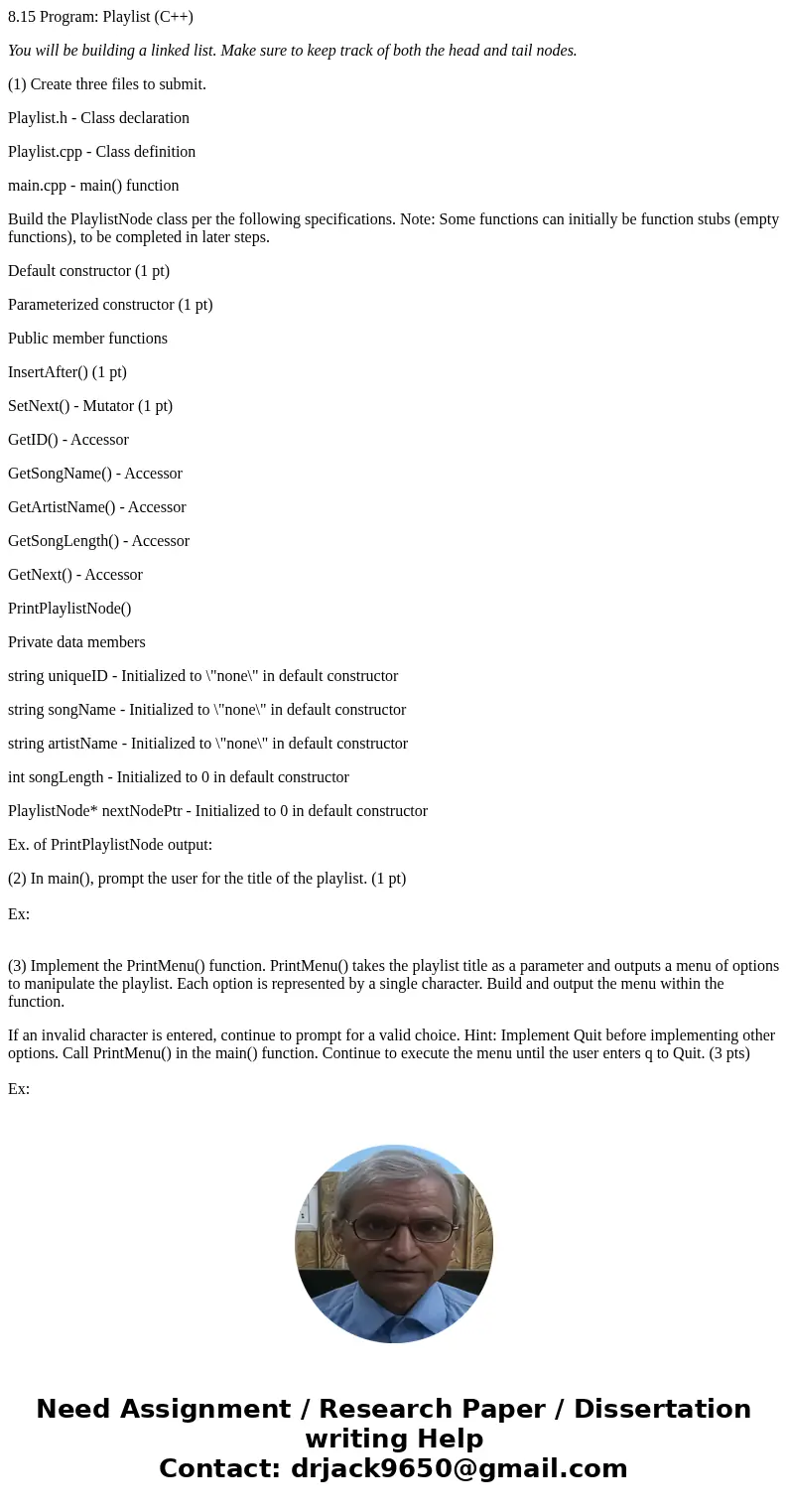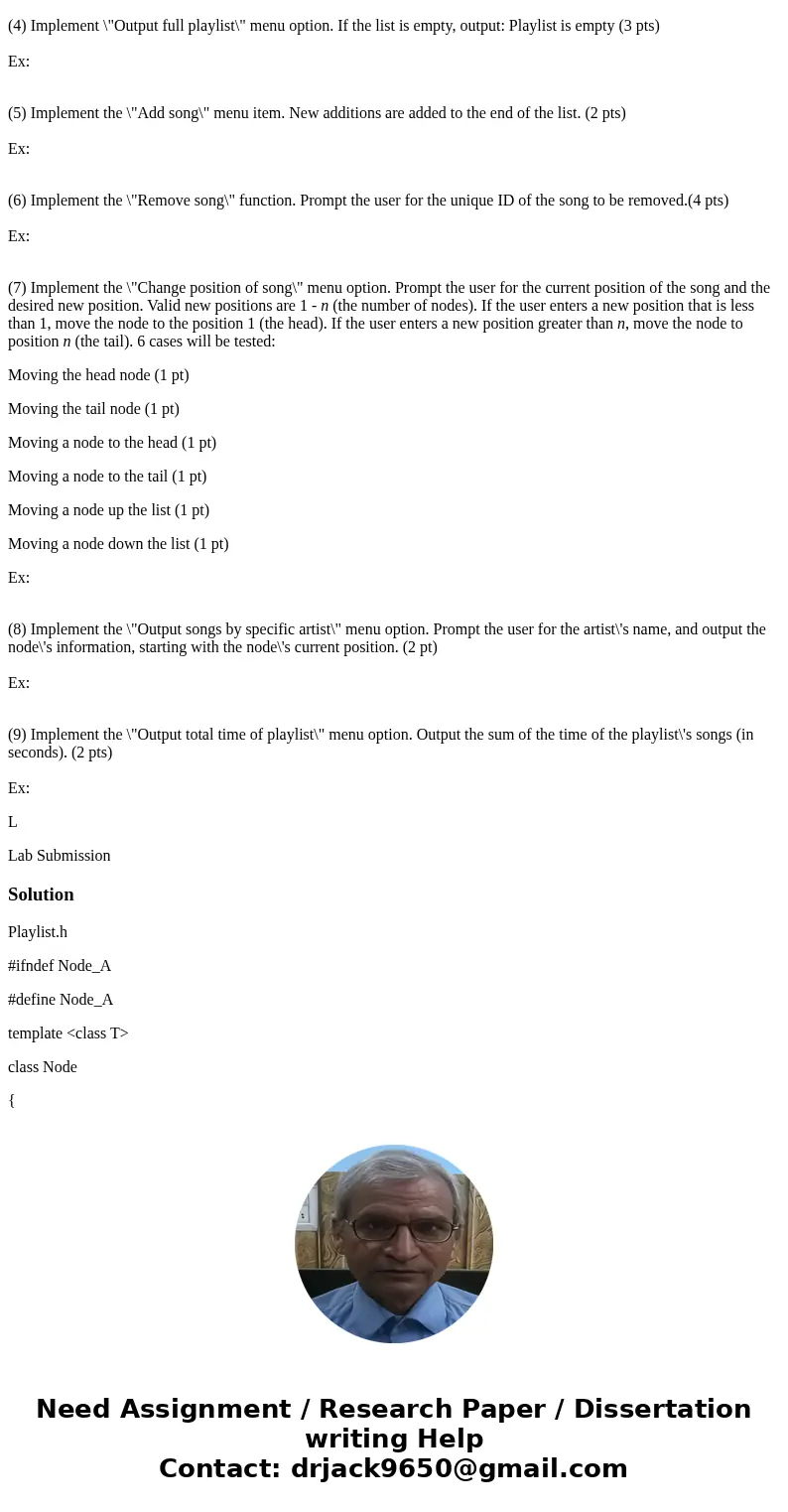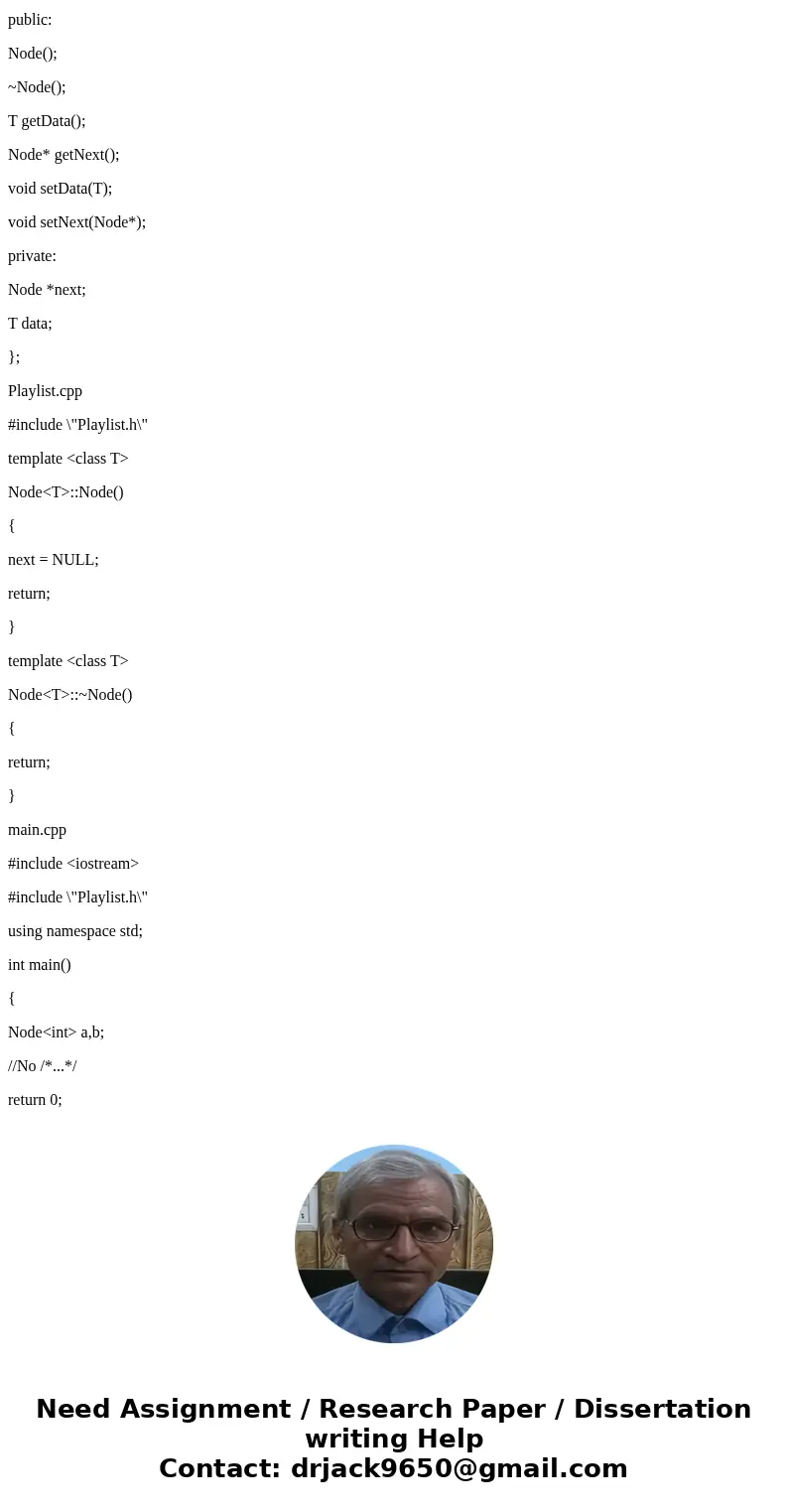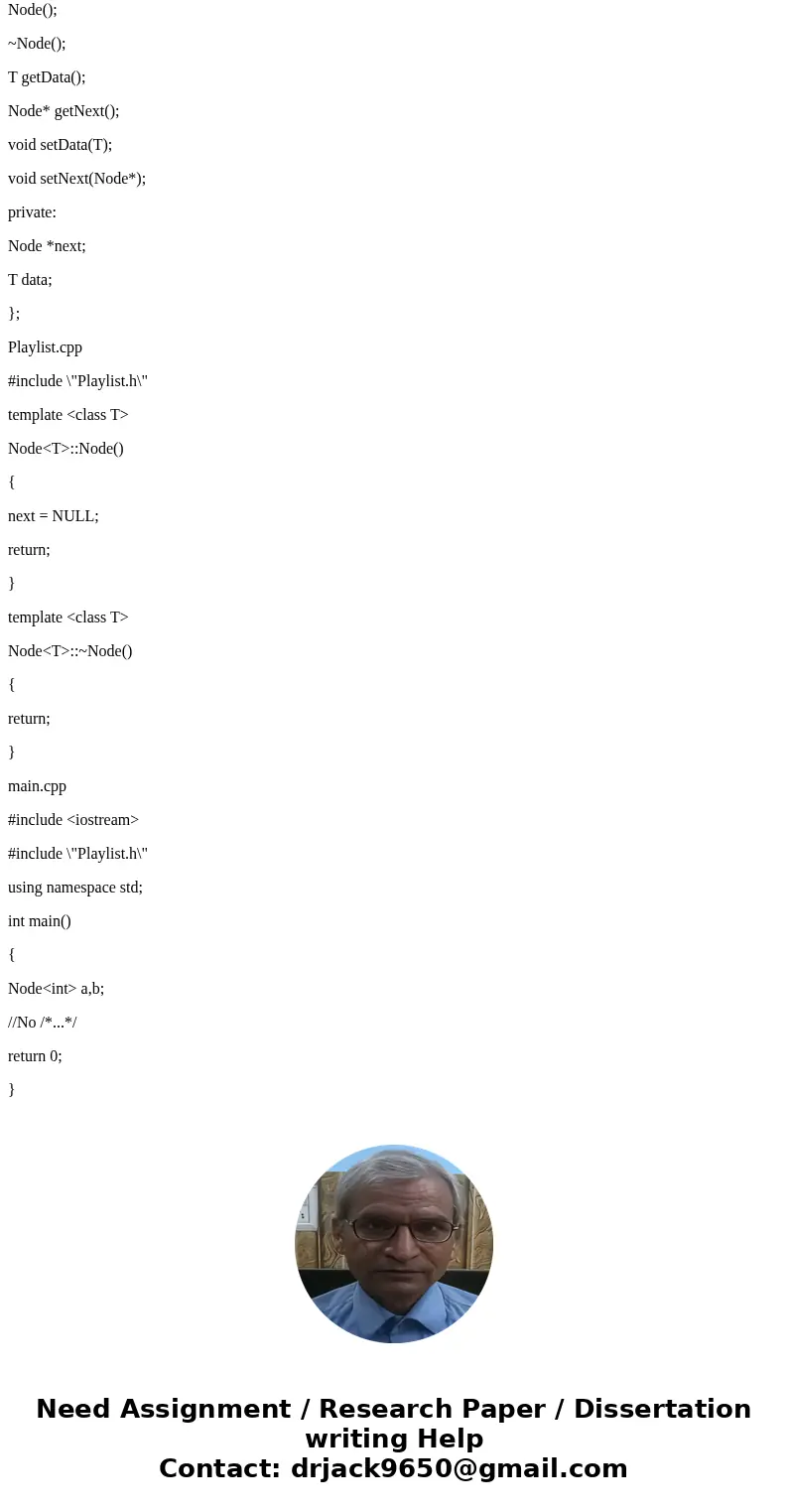815 Program Playlist C You will be building a linked list Ma
8.15 Program: Playlist (C++)
You will be building a linked list. Make sure to keep track of both the head and tail nodes.
(1) Create three files to submit.
Playlist.h - Class declaration
Playlist.cpp - Class definition
main.cpp - main() function
Build the PlaylistNode class per the following specifications. Note: Some functions can initially be function stubs (empty functions), to be completed in later steps.
Default constructor (1 pt)
Parameterized constructor (1 pt)
Public member functions
InsertAfter() (1 pt)
SetNext() - Mutator (1 pt)
GetID() - Accessor
GetSongName() - Accessor
GetArtistName() - Accessor
GetSongLength() - Accessor
GetNext() - Accessor
PrintPlaylistNode()
Private data members
string uniqueID - Initialized to \"none\" in default constructor
string songName - Initialized to \"none\" in default constructor
string artistName - Initialized to \"none\" in default constructor
int songLength - Initialized to 0 in default constructor
PlaylistNode* nextNodePtr - Initialized to 0 in default constructor
Ex. of PrintPlaylistNode output:
(2) In main(), prompt the user for the title of the playlist. (1 pt)
Ex:
(3) Implement the PrintMenu() function. PrintMenu() takes the playlist title as a parameter and outputs a menu of options to manipulate the playlist. Each option is represented by a single character. Build and output the menu within the function.
If an invalid character is entered, continue to prompt for a valid choice. Hint: Implement Quit before implementing other options. Call PrintMenu() in the main() function. Continue to execute the menu until the user enters q to Quit. (3 pts)
Ex:
(4) Implement \"Output full playlist\" menu option. If the list is empty, output: Playlist is empty (3 pts)
Ex:
(5) Implement the \"Add song\" menu item. New additions are added to the end of the list. (2 pts)
Ex:
(6) Implement the \"Remove song\" function. Prompt the user for the unique ID of the song to be removed.(4 pts)
Ex:
(7) Implement the \"Change position of song\" menu option. Prompt the user for the current position of the song and the desired new position. Valid new positions are 1 - n (the number of nodes). If the user enters a new position that is less than 1, move the node to the position 1 (the head). If the user enters a new position greater than n, move the node to position n (the tail). 6 cases will be tested:
Moving the head node (1 pt)
Moving the tail node (1 pt)
Moving a node to the head (1 pt)
Moving a node to the tail (1 pt)
Moving a node up the list (1 pt)
Moving a node down the list (1 pt)
Ex:
(8) Implement the \"Output songs by specific artist\" menu option. Prompt the user for the artist\'s name, and output the node\'s information, starting with the node\'s current position. (2 pt)
Ex:
(9) Implement the \"Output total time of playlist\" menu option. Output the sum of the time of the playlist\'s songs (in seconds). (2 pts)
Ex:
L
Lab Submission
Solution
Playlist.h
#ifndef Node_A
#define Node_A
template <class T>
class Node
{
public:
Node();
~Node();
T getData();
Node* getNext();
void setData(T);
void setNext(Node*);
private:
Node *next;
T data;
};
Playlist.cpp
#include \"Playlist.h\"
template <class T>
Node<T>::Node()
{
next = NULL;
return;
}
template <class T>
Node<T>::~Node()
{
return;
}
main.cpp
#include <iostream>
#include \"Playlist.h\"
using namespace std;
int main()
{
Node<int> a,b;
//No /*...*/
return 0;
}




 Homework Sourse
Homework Sourse